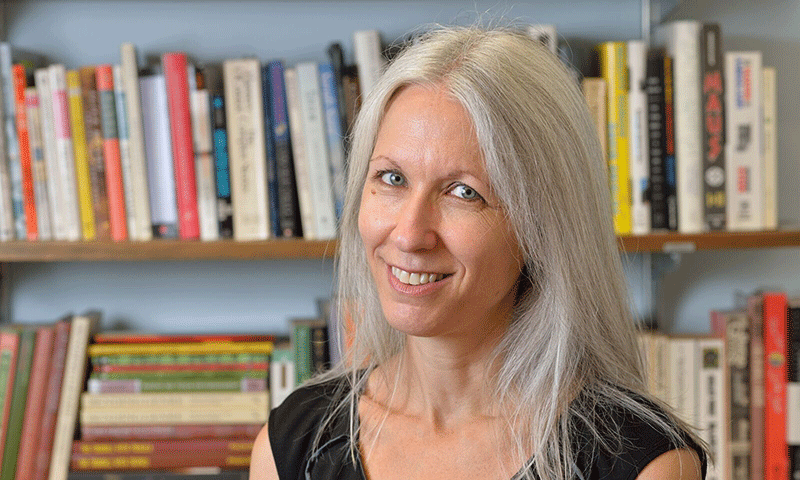A New York Times Book Review Editor’s Choice book, Denison University English professor Margot Singer’s novel “Underground Fugue” has been touted by readers and reviewers alike. The novel is set in 2005, against the background of the London Tube bombings. Four major characters—a dying mother and the daughter who looks after her, an Iranian doctor and son who live next door—provide the grist for the complicated relationships and situations that propel the reader forward.
This is the first novel by Singer, who won the Flannery O’Connor Award for Short Fiction for her short story collection, “The Pale of Settlement.” Underground Fugue tests the relationship of a mother and daughter, the thrill and vulnerability of unfolding love, as well as suspicion, judgment and self-doubt. Pulitzer Prize-winning author Geraldine Brooks noted “In this extraordinarily accomplished debut novel, Margot Singer confronts life’s essential losses — aging, illness, accidental death — but also the scalding, self-inflicted wounds of alienation, estrangement, and prejudice. The book’s tender, questing spirit imbues even these dark recesses with a kind of luminosity, making ‘Underground Fugue’ a pleasure to read from beginning to end.”
The characters in Singer’s novel are connected during a moment in history when Western awareness of the specter of terrorism has been heightened. “At one level the story is pretty simple: it’s about what happens to four people, neighbors, over the course of the summer of 2005. But, of course, it’s more complicated than that,” says Singer. “As an American, at least, I don’t think you can think about terrorism without remembering 9/11. And you can’t think about refugees and racism without thinking about the Holocaust. All of these elements are intertwined in our historical consciousness, in our political discourse, in our imaginations.”
Singer compares the structure of her novel to a musical composition. “Early on, I spent a lot of time simply looking for connections, for resonance. I found I kept coming back to certain images: flight, heights, stars, water, grayness, music, underground. I came to see the image-patterns operating rather like the repeated melodic fragments – the subject, answer, and countersubject – in a fugue.”
“Underground Fugue” was selected as one of Elle’s “Most Anticipated Books by Women” of 2017. Singer’s award-winning collection of short stories, “The Pale of the Settlement,” composed of interconnected family stories, received an Honorable Mention for the PEN/Hemingway Award. She also has been recognized with the Reform Judaism Prize for Jewish Fiction and the Glasgow Prize for Emerging Writers. Her work has been featured on NPR and in the Kenyon Review, the Gettysburg Review, Agni, and Conjunctions, among other publications.
